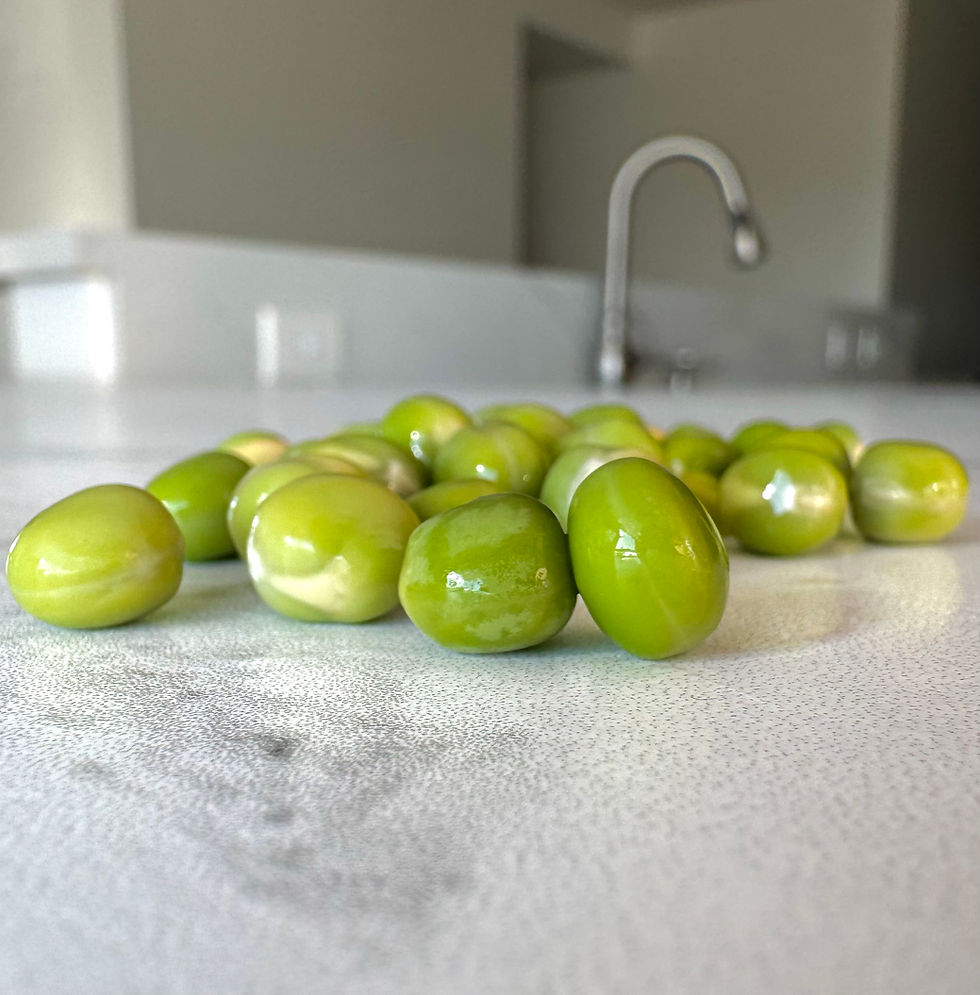Plant-Based Protein: The Secret to Weight Loss and Muscle Gain – by Francesca Nardelli
- Francesca Nardelli

- Apr 1, 2025
- 4 min read
Updated: Dec 22, 2025

When it comes to building lean muscle and supporting weight loss, one thing is clear: protein is a game-changer. But here’s the catch—getting quality protein doesn’t require animal products. In fact, plant-based proteins are just as effective, if not better, when it comes to fueling your body and helping you reach your goals. Whether you’re trying to lose weight or build muscle, optimizing your plant-based protein intake is the key to success.
So, let’s talk about why plant-based protein should be your go-to for fitness and health—and how to make it work for you.

Why Plant-Based Protein is the Real Deal
Plant-based protein sources aren’t just for vegans—they’re for anyone who wants to feel strong, lean, and energized. Unlike animal proteins, plant-based proteins come with a host of added benefits: they’re rich in fiber, packed with micronutrients, and full of antioxidants that support overall health.
But here’s the best part—plant-based protein helps you achieve your goals of weight loss and muscle gain without the added fat, cholesterol, or hormones found in animal-based products. Plus, these proteins are easy on the digestive system, making it easier to maintain consistency over time.
So, if you want to build muscle, stay lean, and feel amazing, plant-based protein is your secret weapon.

Top Plant-Based Protein Sources
Lentils and Beans: Whether you’re going for black beans, chickpeas, or lentils, these legumes are some of the most protein-packed foods out there. One cup of cooked lentils provides around 18 grams of protein and is also high in fiber, helping you feel fuller for longer.
Tofu and Tempeh: Tofu and tempeh are plant-based protein staples that are versatile enough to be used in everything from stir-fries to smoothies. Tofu offers about 8 grams of protein per 3-ounce serving, while tempeh offers a stronger 15 grams of protein per 3 ounces.
Quinoa: Unlike many plant-based protein sources, quinoa is a complete protein, meaning it contains all nine essential amino acids. It’s an excellent option for anyone looking to support muscle growth while getting a dose of fiber and complex carbs.
Chia Seeds: These tiny seeds pack a punch with around 5 grams of protein per ounce. Chia seeds are also a fantastic source of omega-3 fatty acids, which are great for recovery and overall inflammation reduction.
Edamame: These young soybeans are a powerhouse protein source, providing 17 grams of protein per cup. They’re also rich in healthy fats and fiber, making them perfect for a post-workout snack.
Hemp Seeds: Offering 10 grams of protein per 3 tablespoons, hemp seeds are a complete protein that also delivers essential fatty acids. They’re perfect for adding to smoothies, salads, or even just sprinkling over your avocado toast.
Peas: Peas are a fantastic source of protein with about 9 grams per cup. Pea protein is also known for its ability to help build muscle and is often used in plant-based protein powders for that very reason.
Spirulina: This blue-green algae is a nutrient-dense source of protein that’s easy to add to smoothies. Just one tablespoon provides 4 grams of protein, along with a wide range of vitamins and minerals.
How to Optimize Your Plant-Based Protein for Weight Loss

When it comes to weight loss, protein is your best friend. Not only does it help keep you full, but it also boosts your metabolism by requiring more energy to digest. Plus, a higher protein intake helps preserve lean muscle mass, which is crucial for staying toned while shedding fat.
Here’s how you can optimize your plant-based protein intake for weight loss:
Balance Your Macronutrients: While protein is key, don’t forget about carbs and fats. Ensure you’re getting a healthy balance of all three macronutrients. Focus on whole, unprocessed carbs (think quinoa, sweet potatoes, and brown rice) and healthy fats (avocado, nuts, and seeds).
Time Your Protein Right: If you’re exercising regularly, aim to consume protein both before and after your workouts to support muscle repair and growth. A protein-rich breakfast and a post-workout smoothie can go a long way in helping your body recover and burn fat efficiently.
Eat Protein with Every Meal: Spread your protein intake throughout the day to keep your metabolism revved up. Add protein-rich foods like tempeh, quinoa, or lentils to every meal to stay satisfied and curb unnecessary cravings.
Hydrate with Purpose: Protein requires water for digestion, so make sure you’re staying hydrated throughout the day. Water also helps reduce bloating and supports muscle recovery.
How to Build Muscle with Plant-Based Protein
For those of you focused on muscle gain, plant-based protein is still the key. Here’s how to make sure you’re using it to your advantage:
Prioritize Complete Proteins: While all plant-based proteins are great, complete proteins (like quinoa, tempeh, and hemp seeds) provide all nine essential amino acids your body needs for muscle repair and growth. Be sure to incorporate these in your meals.
Increase Your Protein Intake: Building muscle requires more protein than just maintaining. Aim for around 1.2 to 1.6 grams of protein per kilogram of body weight, depending on your level of activity and muscle-building goals.
Strength Train Consistently: To see the benefits of plant-based protein, you need to put it to work. Focus on strength training exercises like squats, deadlifts, and push-ups to maximize muscle growth.
Focus on Recovery: After an intense workout, your muscles need recovery time. Consuming protein post-workout helps repair muscle tissue and kick-starts growth. A smoothie with pea protein, almond milk, and berries is a great way to replenish your body.
The Bottom Line: Fuel Your Fitness with Plant-Based Protein
Whether you’re focused on losing weight or building lean muscle, plant-based protein is an essential part of your fitness plan. With the right combination of whole, nutrient-dense protein sources, you can optimize your diet for fat loss, muscle gain, and overall wellness—without compromising flavor or nutrition.
Start incorporating these plant-based protein sources into your meals, and you’ll notice not only improved results but an overall feeling of strength and vitality. It’s not just about hitting your fitness goals—it’s about nourishing your body the right way.
Ready to take your diet and fitness routine to the next level? Embrace the power of plant-based protein, and watch your body transform.

Francesca Nardelli is a wellness expert who combines fitness and plant-based living to help others achieve their best, healthiest selves. From creating muscle-building recipes to offering fitness tips, Francesca’s approach is all about balanced, sustainable health.

.png)



Comments